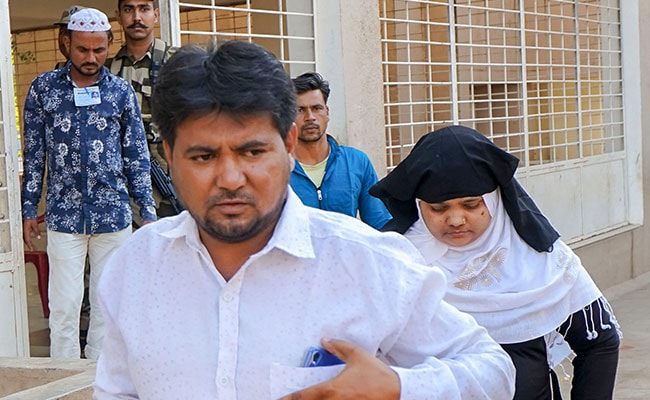
In a landmark judgment, the Supreme Court has directed the Gujarat government to give Rs 50 lakhs, a job, accommodation and compensation to Bilkis Bano who was gang-raped in one of the worst single cases in the 2002 Gujarat riots. During the riots, 14 members of Bilkis' family were killed, including her two-and-half-year old daughter who was snatched from her mother's arms and smashed on a rock. This compensation comes two years after the Bombay High court delivered justice, convicting 11 of the accused, including five Gujarat policemen and two doctors for tampering with evidence.
Here is look at how the Bilkis Bano case unfolded:
On March 3, 2002 Bilkis Bano's family was attacked by a mob at Randhikpur village near Ahmedabad during the post-Godhra riots.
Bilkis, five months pregnant at that time, was gang-raped and several members of her family were killed.
The trial in the case initially began in Ahmedabad.
However, after Bilkis expressed apprehensions that the witnesses could be harmed and the CBI evidence tampered with, the Supreme Court transferred the case to Mumbai in August 2004.
A special court had on 21 January, 2008 convicted and sentenced to life imprisonment 11 men for raping Bilkis and murdering seven of her family members, while acquitting seven persons including the policemen and doctors.
The high court, on May 4, 2017, convicted seven people - five policemen and two doctors - under charges of not performing their duties and tampering of evidence.
The top court had on July 10, 2017 dismissed the appeals of two doctors and four policemen, including an IPS officer R S Bhagora, challenging their conviction by the high court saying there was "clear-cut evidence" against them. One of the officers did not appeal.
The convicts had later approached the Bombay High Court and sought quashing and setting aside of the trial court's conviction.
The CBI had also filed an appeal in the high court seeking harsher punishment of death for three of the convicted persons on the ground that they were the main perpetrators of the crime.
The convicts had challenged the order on three main grounds - that all evidence in the case was fabricated by CBI, that Bilkis gave birth to a child after the incident, proving that she could not have been gang raped, and the failure to find the bodies of some of her family members which proved that they were not killed.
(With inputs from PTI)

